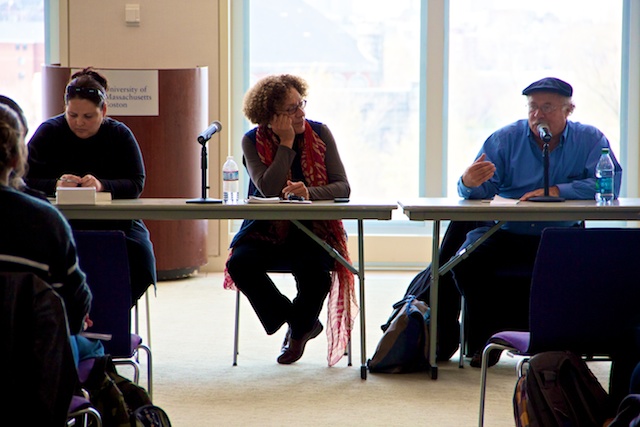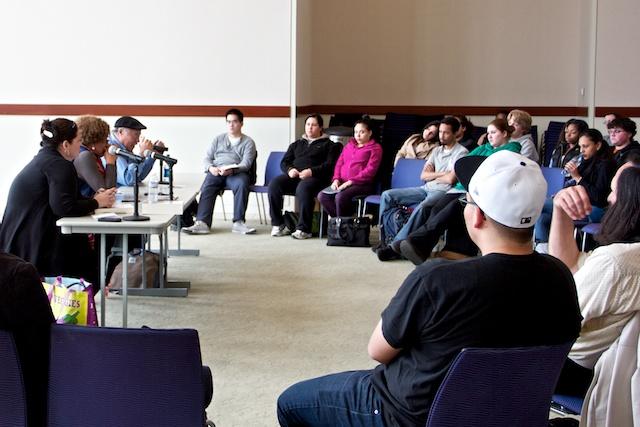On April 9 the Office of Diversity and Inclusion teamed up with the student club Casa Latina to present “The Afro-Latino Experience in America,” a discussion addressing music, and gender of those who identify as black and Latino.
Miriam Jimenez Roman, Juan Flores, and Marisol Negron were present to speak about issues Afro-Latinos face everyday, including media representation, class and history.
As defined on Roman’s website Afrolatin@ Forum, Afro-Latinos “belong to both groups: black and Latino. They are people of African descent in Mexico, Central and South America, and the Spanish-speaking Caribbean, and by extension those of African descent in the United States whose origins are in Latin America and the Caribbean.”
Roman is the executive director of the “Afrolatin@ Forum” and editor of “The Afro-Latin@ Reader.” Flores is a professor of Social and Cultural Analysis and the director of Latino Studies at New York University and also editor of “The Afro-Latin@ Reader.” Negron is an American and Latino Studies professor at UMass Boston.
Speaking about the event, sociology major and student coordinator of Casa Latina Abel Cano said, “[It] was a great success for multiple reasons. First, I feel honored to have had such an accomplished set of panelists at our event. Marisol Negron, Miriam Jimenez Roman, and Juan Flores were all very perceptive and skillful in articulating the issues affecting the Afro-Latino community in the U.S., as well as the ways in which those issues affect other groups. Second, it was amazing to see people really engaging and identifying with the topics being discussed. These conversations are not only relevant, but vital to understanding our circumstances as Latinos, as Americans, and as human beings.”
Questions asked included:
• “How should I navigate the challenging landscape of an Afro-Latino, including societally induced identity conflicts?”
• “Why don’t we have sufficient or accurate representation in the media?”
• “How can we work in unity to uncover the issues, dispel myths, educate, and fight for a better tomorrow?”






















































